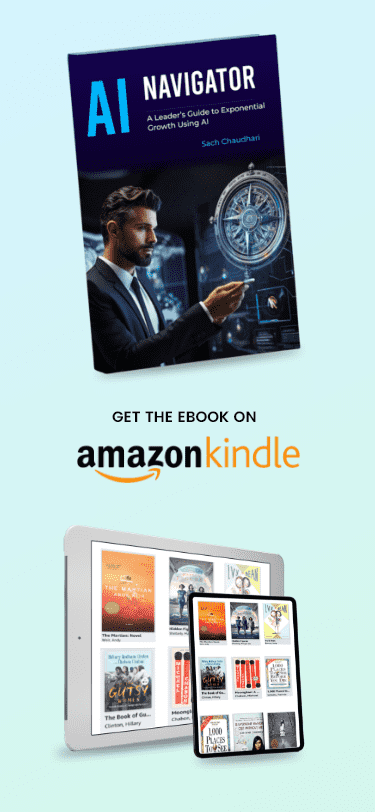Introduction
Artificial Intelligence (AI) has become a game-changer in transforming productivity across industries. By automating routine tasks and streamlining workflows, AI is empowering businesses to work smarter, not harder. This article explores 15 real-life success stories showcasing how AI for productivity is transforming operations in diverse sectors such as legal, tech, e-commerce, healthcare, and more.
Definition of AI for Productivity
AI for productivity refers to the use of AI technologies like machine learning, natural language processing (NLP), and Robotic Process Automation (RPA) to simplify tasks, enhance efficiency, and reduce the manual workload in business operations. It allows companies to:
- Automate repetitive tasks
- Improve decision-making through data-driven insights
- Enhance accuracy and reduce human error
- Free up employees to focus on more strategic tasks
Importance of AI in Modern Work Environments
AI is increasingly becoming integral in organizations for:
- Automating manual tasks
- Enhancing decision-making through AI-driven data analysis
- Improving accuracy and minimizing errors
- Increasing employee productivity by taking over time-consuming tasks
Real-Life Success Stories
Case Study 1: Intelligent Document Processing in Legal Firms
Overview of Implementation:
A mid-sized law firm implemented Intelligent Document Processing (IDP) to automate contract reviews. AI extracted key clauses, identified risks, and summarized documents in minutes, a process that previously took hours.Results Achieved:
- 90% faster contract analysis
- Reduced errors in legal document reviews
- Lawyers could focus on strategic tasks rather than paperwork
Case Study 2: AI Tools for Product Managers in Tech Startups
Technology Used:
A SaaS startup integrated AI-driven roadmapping tools to prioritize features based on customer feedback and market trends.Impact on Project Timelines:
- 30% reduction in time spent on manual backlog grooming
- Faster decision-making through predictive analytics
Case Study 3: AI for Product Management in E-commerce
Streamlining Inventory Management:
An online retailer used AI-powered demand forecasting to optimize stock levels, reducing overstocking and stockouts.Customer Experience Enhancement:
- Personalized product recommendations led to a 20% increase in average order value
- AI chatbots improved customer service response times
Case Study 4: AI in Independent Art Production
Artists Embracing AI Tools:
Digital artists used AI tools like MidJourney and Paradiso AI to generate concept art, speeding up the pre-production process.Creativity vs. Automation Debate:
While AI sparked concerns of replacing artists, it was found to enhance creativity by handling repetitive tasks like background generation.
Case Study 5: AI for Productivity in Marketing Agencies
Content Creation Automation:
A digital marketing agency used AI-powered copywriting tools to generate social media posts and ad copies, cutting content production time by 50%.Analysis of Campaign Performance:
AI-driven analytics optimized campaign spend, improving ROI by 35%.
Case Study 6: Best AI Tools for Productivity in Healthcare
Electronic Health Record Management:
A hospital deployed AI-powered EHR systems to auto-fill patient records, reducing doctors’ administrative burden.Patient Care Improvements:
- Faster diagnosis with AI-assisted imaging analysis
- Predictive analytics helped identify at-risk patients
Case Study 7: AI in Manufacturing Operations
Process Optimization:
A car manufacturer employed AI to detect defects in real-time during assembly, minimizing production delays.Productivity Gains and Waste Reduction:
- 15% increase in production efficiency
- Reduced material waste by 10%
Case Study 8: AI-Driven Customer Support Solutions
Chatbots and Virtual Assistants:
A telecom company integrated AI-powered chatbots to handle common customer queries, reducing call center volume by 40%.Enhancements in Response Times:
- 24/7 support availability
- Faster resolution for routine issues
Conclusion
These case studies highlight the transformative impact AI is having across industries, demonstrating its power in automating tasks, enhancing decision-making, and improving productivity.
Summary of Key Takeaways:
AI automates repetitive tasks and streamlines workflows, saving time and improving efficiency.
AI tools can help businesses in sectors like legal, e-commerce, healthcare, and marketing, optimizing operations and customer service.
Future of AI in Productivity Transformations:
As AI technology evolves, early adopters will gain a competitive edge. However, it’s important to view AI as a complementary tool that enhances human expertise rather than replacing it. Businesses integrating AI strategically will be positioned for long-term success.










